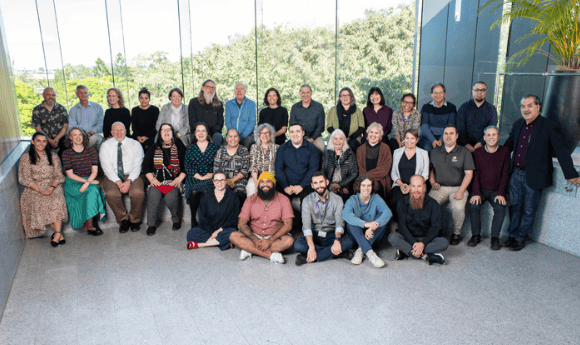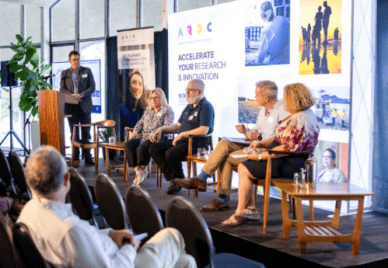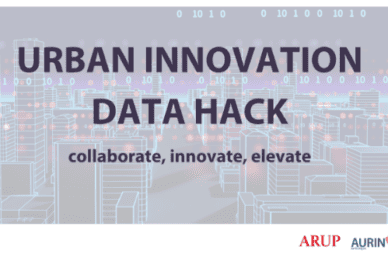
In early July 2023, over 30 participants came together at the University of Queensland on Turrbal and Jagera Country to discuss the social, cultural and technological implications of implementing data licensing and access and authentication controls for Indigenous data in Australia.
The workshop was hosted by the ARDC’s Humanities, Arts and Social Sciences and Indigenous Research Data Commons (HASS and Indigenous RDC).
Empowering Indigenous Communities Through Data
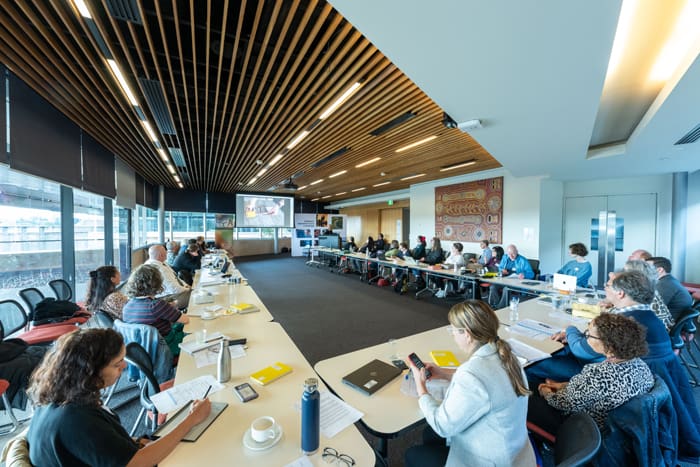
Indigenous data, characterised by its cultural, medical, historical, and traditional knowledge specific to Indigenous communities, demands the utmost respect for the rights and interests of these communities.
For data licensing, informed consent becomes paramount, requiring clear communication regarding the purpose, use, and potential risks or benefits associated with the data. Culturally appropriate consent processes and meaningful community engagement are crucial. Additionally, recognising the sovereignty and self-determination of Indigenous communities, data licensing agreements should ensure community control and ownership over their data.
Where possible licensing agreements should outline the sharing of data, specifying who can access it and any conditions or restrictions on its use. Licensing agreements should incorporate cultural protocols, acknowledging the rights of Indigenous communities to determine how their cultural knowledge is shared, protected, and used.
In terms of access, authentication, and authorisation models, a culturally sensitive and community-centred approach is required. Meaningful engagement with Indigenous communities throughout the development process is crucial, ensuring their perspectives, needs, and values are respected.
Recognising the diversity of Indigenous communities, a one-size-fits-all approach is inadequate. Empowering Indigenous communities, upholding their cultural rights, and co-designing solutions are crucial in ensuring the responsible licensing and access of Indigenous data.
Co-Designing Solutions for Indigenous Data Licensing and Access
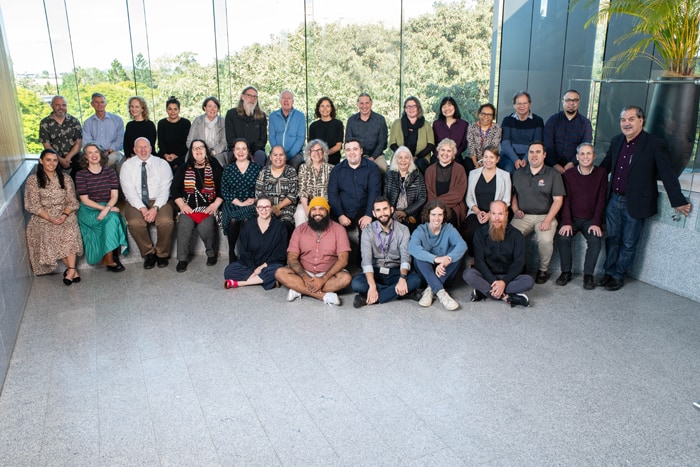
At the roundtable, participants discussed the considerations for implementing Indigenous data licensing, access and authentication, including Local Contexts notices and labels.
Discussion on implementing access and authentication centred around 2 examples:
- Implementing data licensing, access and authentication in the Language Data Commons of Australia
- Access and authentication using Coordinated Access for Data, Researchers and Environment (CADRE).
The roundtable participants included:
- Professor Marcia Langton AO, Yiman and Bidjara, Associate Provost, Foundation Chair of Australian Indigenous Studies at the University of Melbourne
- Levi Murray, Wakka Wakka and Kubi Kubi, Indigenous Data Network at the University of Melbourne
- Dr Rose Barrowcliffe, Butchulla, Macquarie University and Queensland State Archives’ inaugural First Nations Archives Advisor
- Janet McDougall, Australian Data Archive
- Nola Turner-Jensen, Wiradjuri, the Melbourne Graduate School of Education’s Ngarrngga Project
- Dr Peter Sefton, University of Queensland
- Associate Professor Steven McEachern, Australian Data Archive
- Jenny Fewster, Director, HASS and Indigenous RDC, ARDC
- Grant Sarra, Gooreng Gooreng (facilitator)
Other organisations represented included:
- AIATSIS
- The University of Queensland collections
- The University of Melbourne collections
- CSIRO
- Projects within the HASS and Indigenous Research Data Commons:
Next Steps
The roundtable participants committed to continue to work together to help solve and heal a tough series of issues and historic pain points in working with access and authentication of Indigenous data.
The group proposed practical outcomes, and will work through developing the following activities in the coming months
- a discussion paper
- an Indigenous-led roundtable
- a draft code of practice for working with Indigenous data. Key areas it will cover include licensing, access, updated processes for collections institutions, working with Indigenous Traditional Owners, and a review of metadata and interoperability
- a pilot project to investigate the application of Local Contexts Notices and Labels to Indigenous materials in GLAM collections
- a pilot applying the Language Data Commons of Australia access and authentication system for data in the Yirrkala community
- a geospatial mapping pilot across HASS and Indigenous RDC projects:
- Language Data Commons of Australia
- Integrated Research Infrastructure for Social Sciences
- Improving Indigenous Research Capability
- Community Data Lab.
Stay up to date with the HASS and Indigenous RDC by registering your interest.
Here are some photos from the event. Images: Marc Grimwade / ARDC
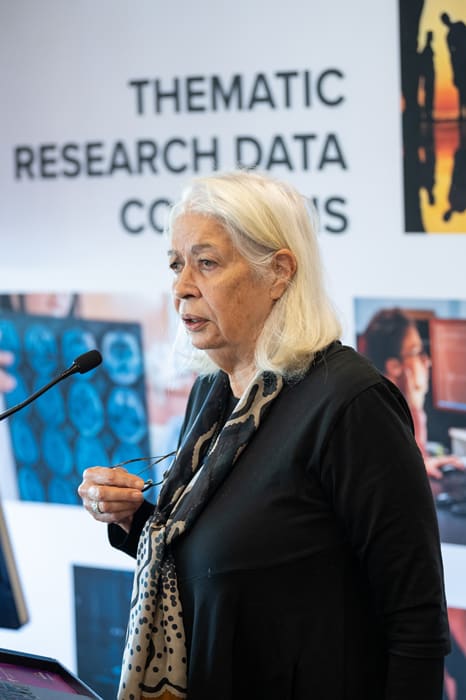
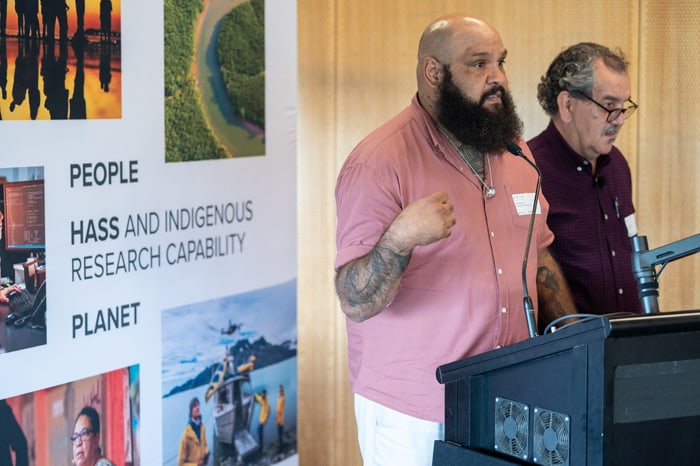
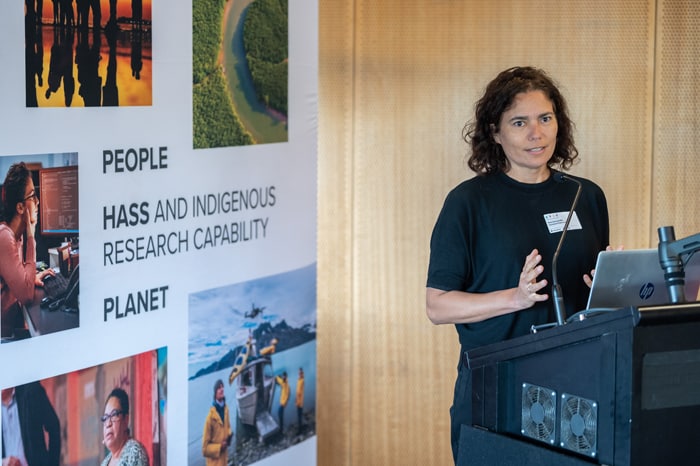
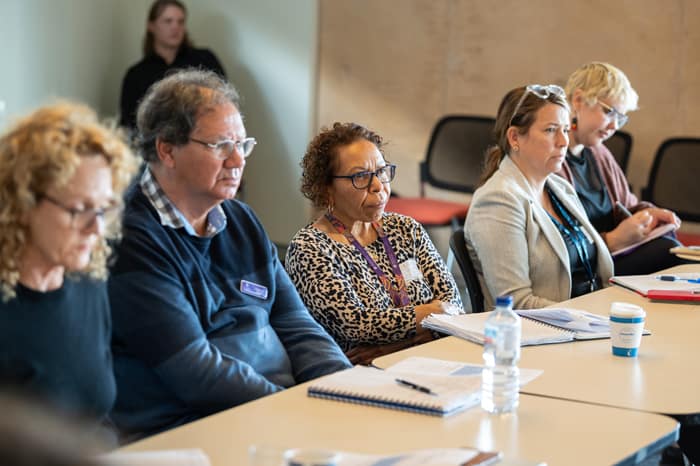
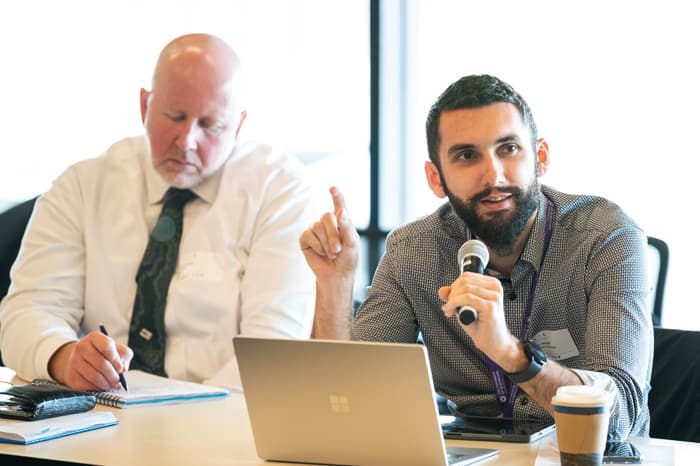
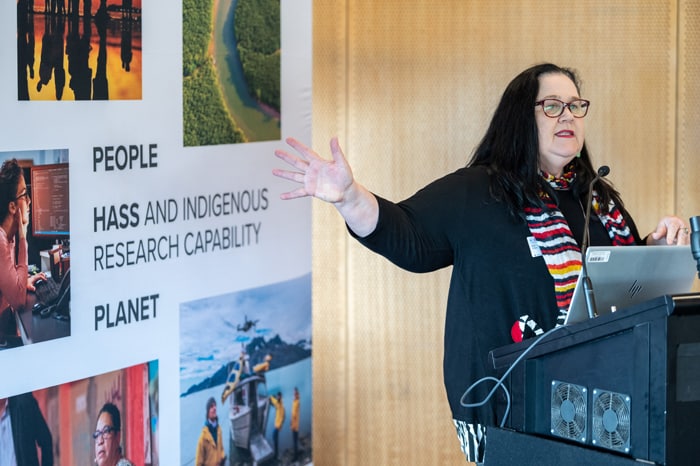
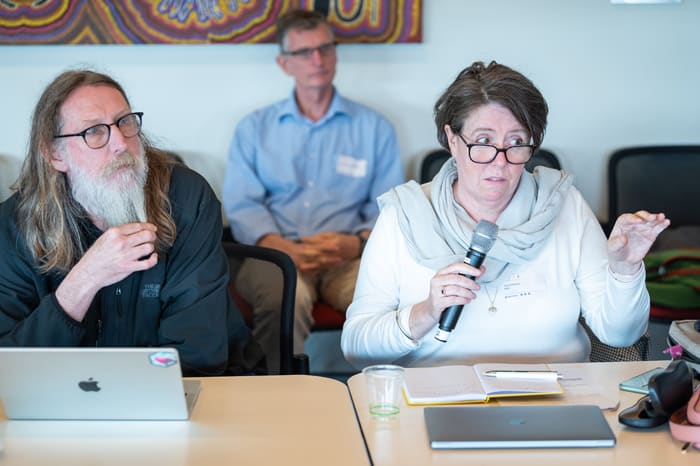
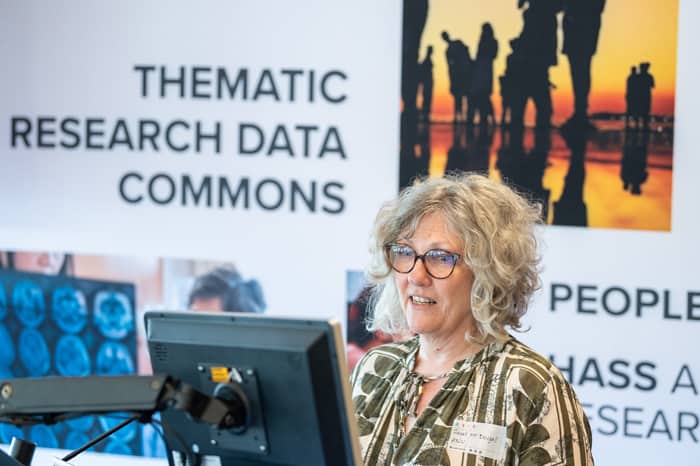
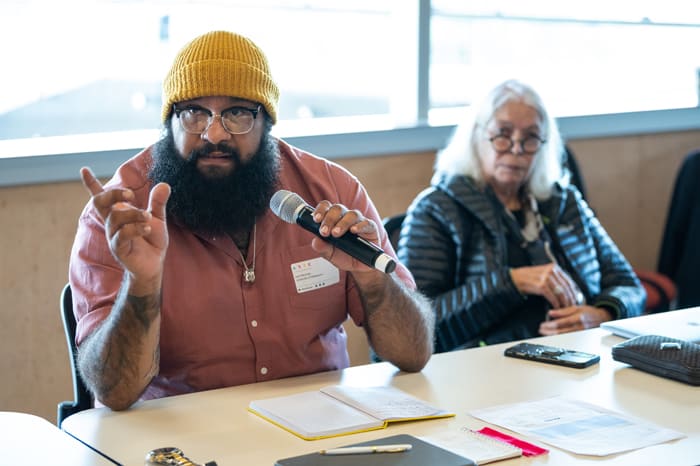
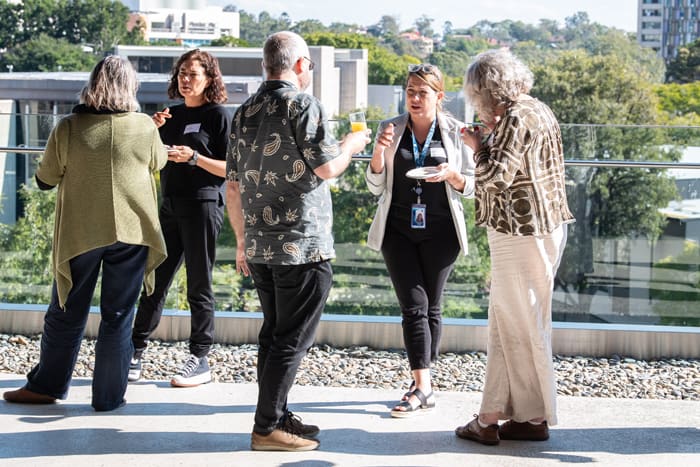
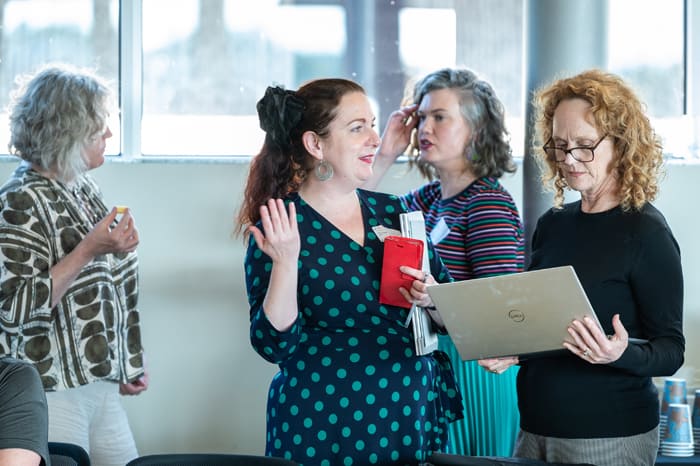
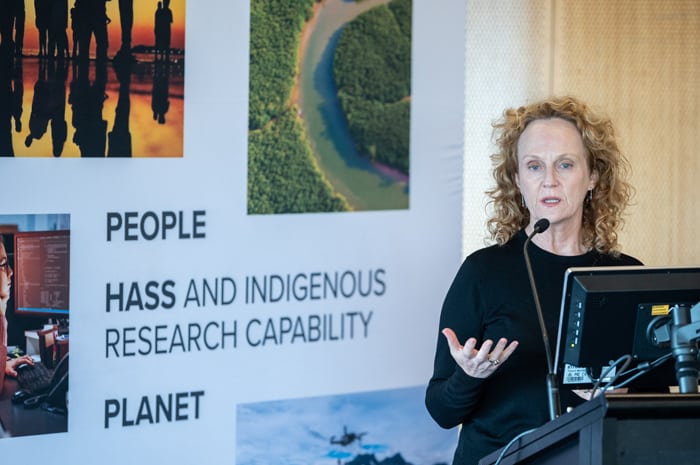
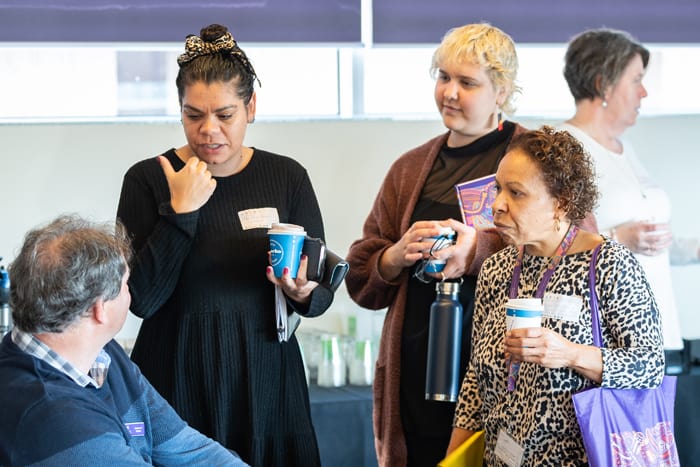
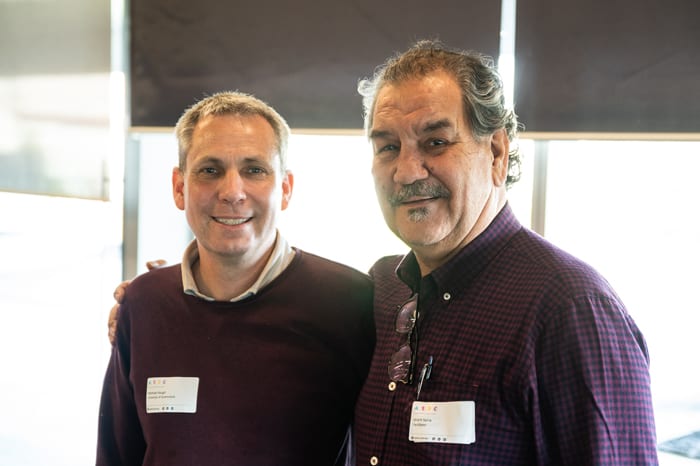
The ARDC is funded through the National Collaborative Research Infrastructure Strategy (NCRIS) to support national digital research infrastructure for Australian researchers.

